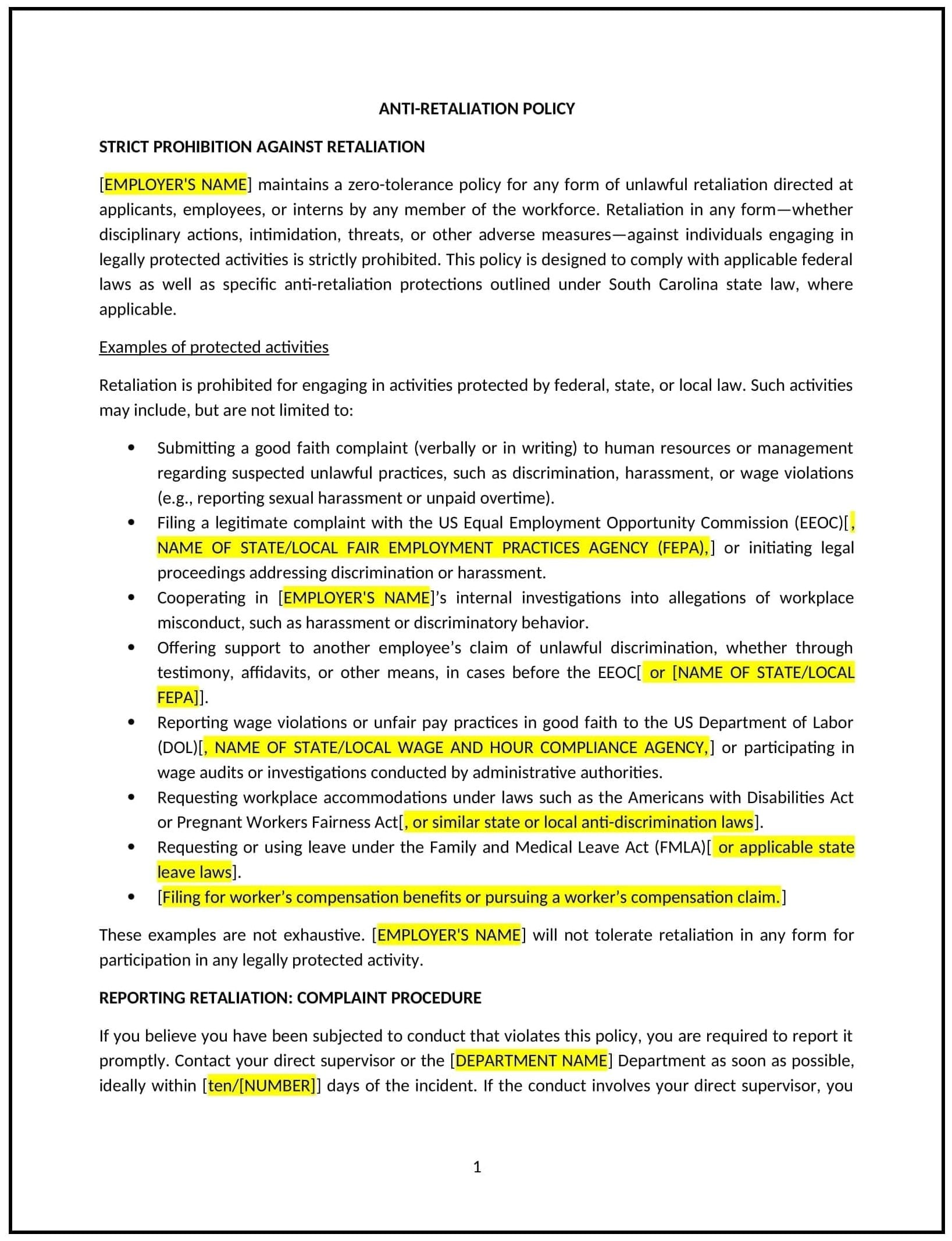Anti-retaliation policy (South Carolina): Free template
Got contracts to review? While you're here for policies, let Cobrief make contract review effortless—start your free review now.

Customize this template for free
Anti-retaliation policy (South Carolina)
This anti-retaliation policy is designed to help South Carolina businesses establish guidelines for protecting employees who report misconduct, file complaints, or participate in investigations. It outlines procedures for preventing retaliation and addressing violations.
By adopting this policy, businesses can promote a culture of transparency, protect whistleblowers, and align with general best practices for employee relations.
How to use this anti-retaliation policy (South Carolina)
- Define retaliation: Specify what constitutes retaliation, such as demotion, termination, or harassment of employees who report misconduct.
- Establish reporting procedures: Provide steps for employees to report retaliation, including anonymous reporting options.
- Address support measures: Outline actions to protect employees from retaliation, such as reassignment or counseling services.
- Set consequences: Explain the disciplinary actions for engaging in retaliation, such as warnings, suspension, or termination.
- Train employees: Educate employees on their rights under the policy and the importance of reporting misconduct without fear of retaliation.
- Provide resources: Include information about employee assistance programs (EAPs) or other support services for affected employees.
- Review and update: Assess the policy annually to ensure it aligns with evolving workplace needs and legal standards.
Benefits of using this anti-retaliation policy (South Carolina)
This policy offers several advantages for South Carolina businesses:
- Promotes transparency: Encourages employees to report misconduct without fear of retaliation.
- Protects whistleblowers: Ensures employees are protected when they participate in investigations or file complaints.
- Aligns with best practices: Demonstrates a commitment to maintaining a fair and ethical work environment.
- Enhances employee confidence: Shows employees that the business values their contributions and protects their rights.
- Reduces risks: Helps mitigate legal and financial liabilities associated with retaliation claims.
Tips for using this anti-retaliation policy (South Carolina)
- Communicate the policy: Share the policy with employees and include it in the employee handbook.
- Provide training: Educate employees and managers on recognizing and preventing retaliation.
- Monitor compliance: Regularly review reports of retaliation to ensure adherence to the policy.
- Address issues promptly: Take immediate action to investigate and resolve reports of retaliation.
- Update regularly: Review the policy annually to ensure it remains relevant and effective.